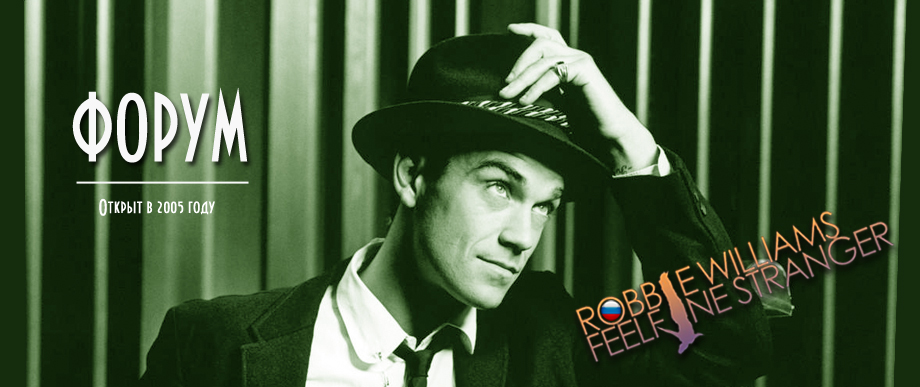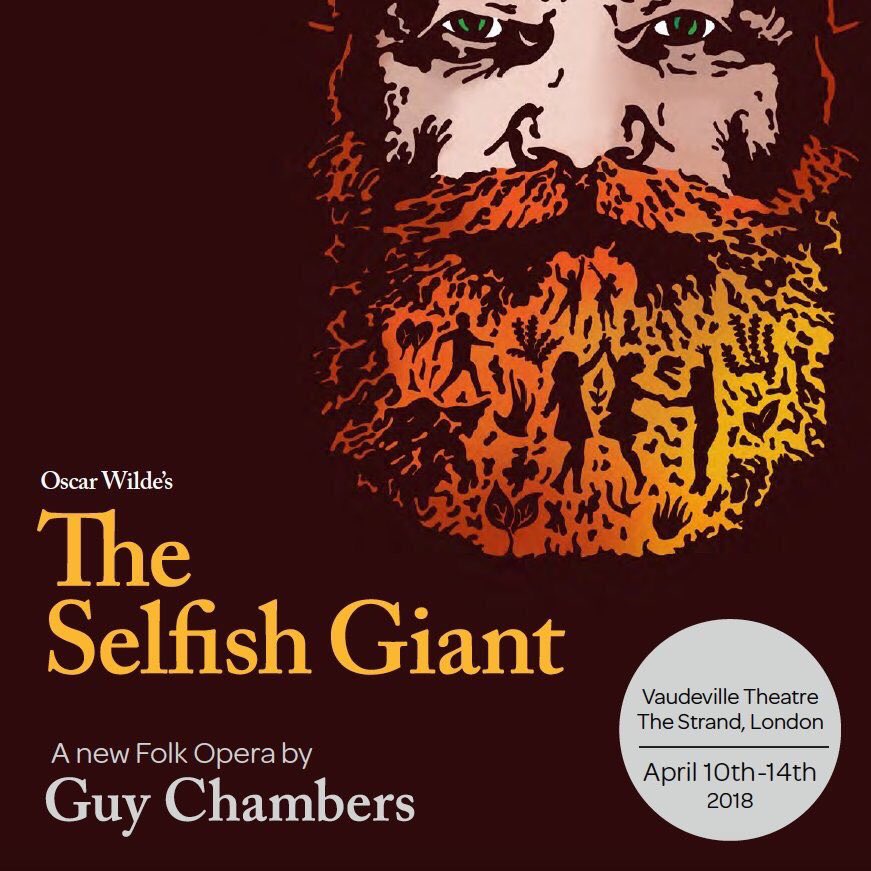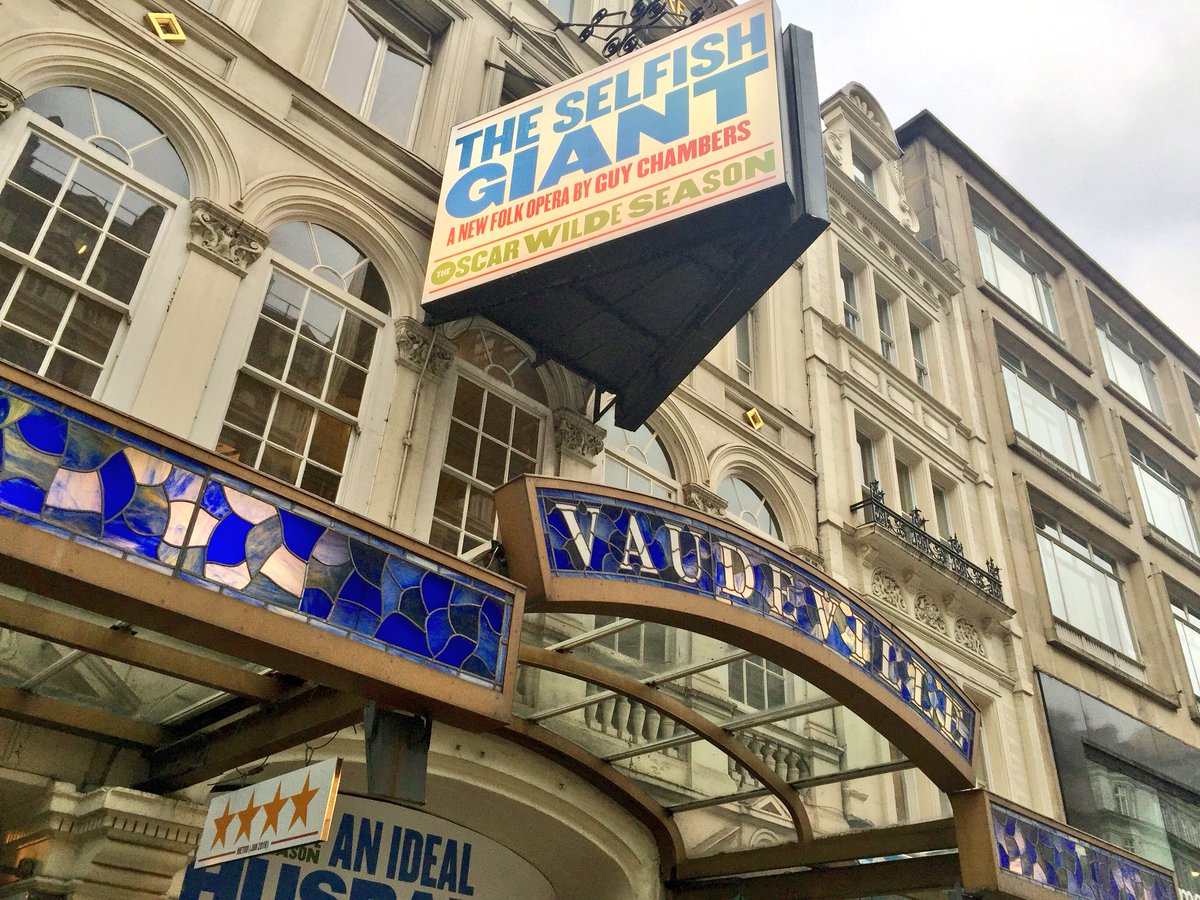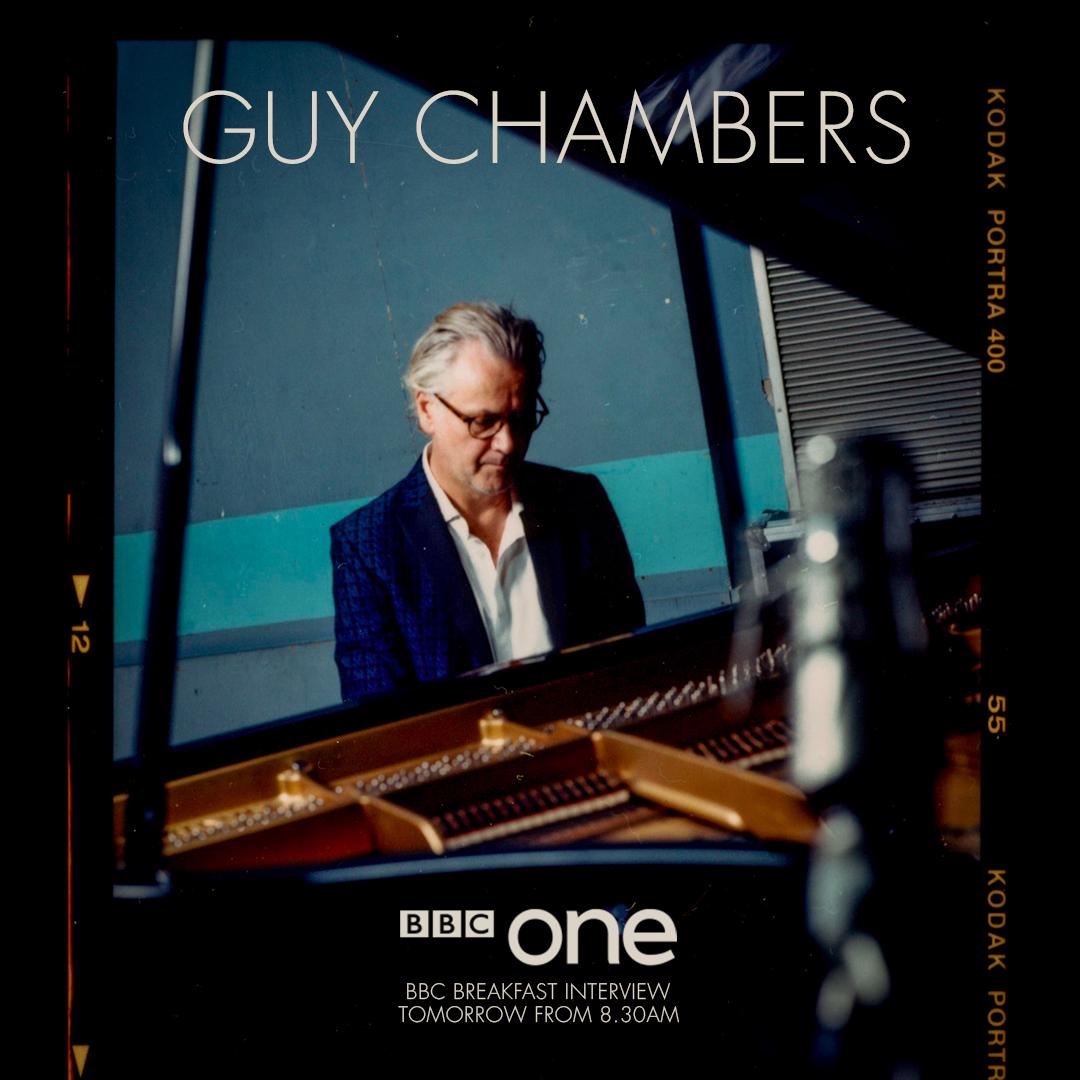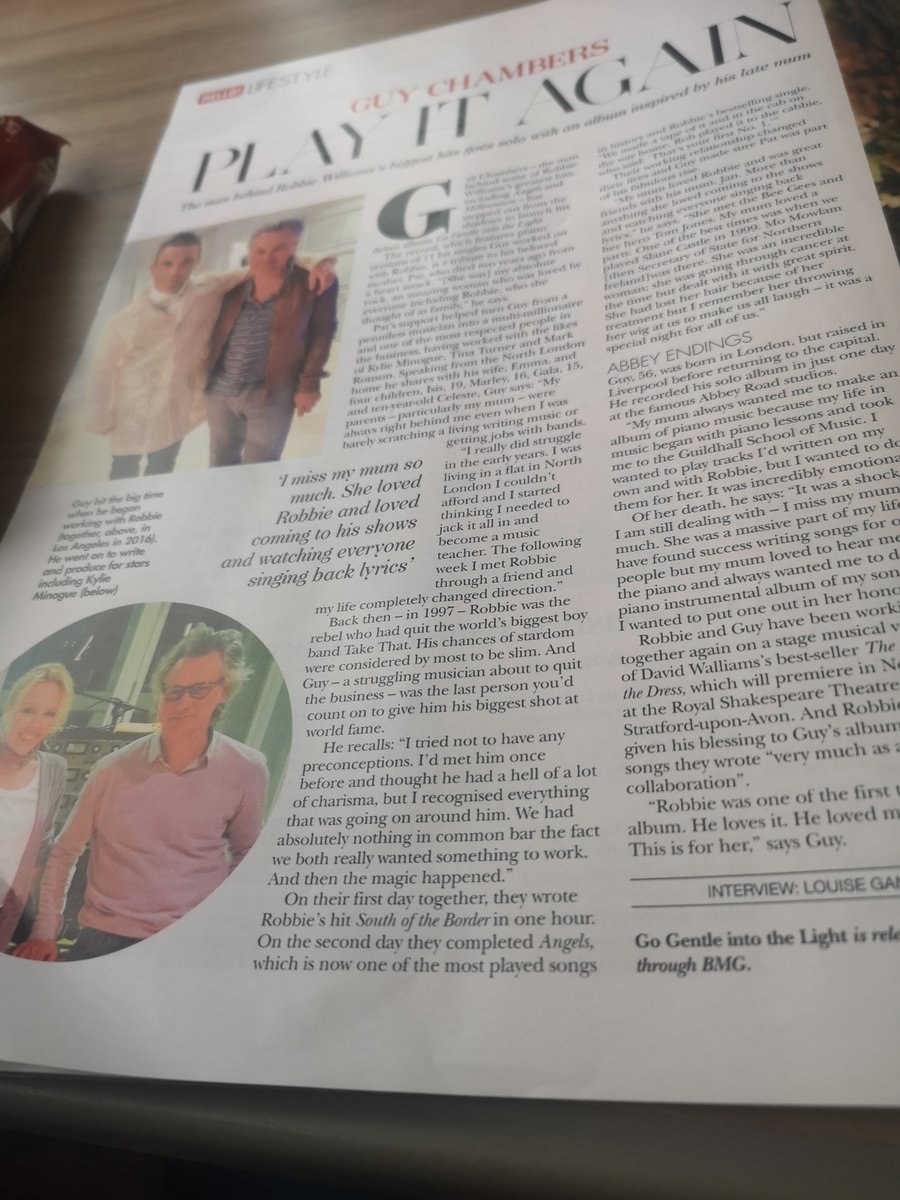Уильямс и Чемберс
Сообщений 121 страница 141 из 141
Поделиться12225.10.2016 21:38
Вот эта девушка мелькала в твиттере у Гая частенько, когда он рекламировал инструменты с альбома Робби.
Судя по всему, ей тоже будем благодарны за альбом.
Да и милая девушка, что уж там 
http://earlmusic.co/
https://www.instagram.com/earlmusic/
Поделиться12301.04.2017 12:25
Разбираюсь сейчас с неизданными песнями, тоже весьма любопытный момент. Потом поделюсь, как на сайте страницу обновлю.
Например, вот эта песня The Lemon Trees (в которой играл Гай), позже была записана уже с Робби, но так и не появилась.
Жаль, хорошая песня.
Вот так звучал оригинал
Поделиться12510.07.2017 13:16
Гай готовит мюзикл по Оскару Уальду, но без Робби
http://www.standard.co.uk/goingout/arts … 83876.html
Поделиться12709.04.2018 23:18
свежее интервью с Гаем
http://www.bbc.co.uk/programmes/p063hfc8
Поделиться12813.04.2018 07:12
Guy mentioned that Eternity was written in a graveyard 
Поделиться12913.04.2018 15:12
graveyard (кладбище)? What was the reason?
I haven't heard that interview yet. Should I?
Поделиться13119.03.2019 12:32
О, Гай выпускает альбом 3 мая - инструменталки песен с Робби ))
https://itunes.apple.com/fr/album/go-ge … 1454531465
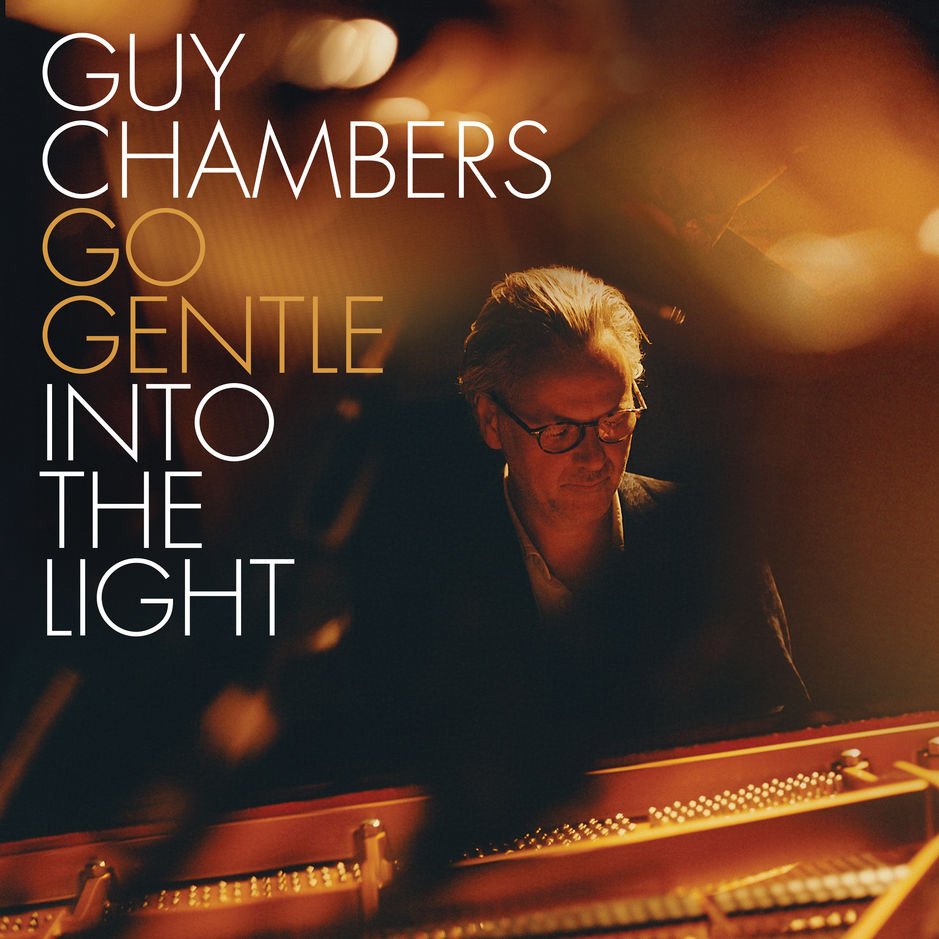
1. The Road To Mandalay
2. Heaven From Here
3. Go Gentle
4. Supreme
5. Grace
6. Better Man
7. No Regrets
8. Feel
9. Angels
10. Millennium
11. Eternity
Поделиться13220.03.2019 23:39
Мне нравится 
Поделиться13323.03.2019 11:59
Напоминает музыку из фильма Залечь на дно в Брюгге!
Сразу этот фильм вспомнился... Очень даже не плохо и теперь даже очень интересно как будут звучать остальные песни.
Поделиться13504.05.2019 19:44
Mandalay был гораздо круче! А это туфта какая-то...
Поделиться13609.05.2019 12:23
Да, странно, но Angels прозвучала у Гая скучно
Cпасибо ему, что реанимировал Grace. Что же это за альбомище - I've Been Expecting You!
Ну, а лучше всех инструменталкой на альбоме звучит Millennium, как мне кажется.
Поделиться13713.05.2019 10:49
Залечь на дно в Брюгге
Поделиться13826.05.2019 01:59
Свежее интервью Гая для Music Week
http://www.musicweek.com/talent/read/gu … ple/076276
Попробую как-то найти полную версию. Выложу, если получится.
Поделиться14029.08.2019 01:20
Guy Chambers: "If you're working on a song you really believe in, it's never boring"
The platinum-selling songwriter and producer talks studio techniques, collaboration and more
DANNY TURNERAUG 20, 2019
Taught a harsh music industry lesson when his short-lived pop act The Lemon Trees was disbanded after one album, classically trained producer, songwriter and multi-instrumentalist Guy Chambers rerouted to embark on a career in production.
After some success with British songwriter Cathy Dennis, the opportunity to co-write with the charismatic pop star Robbie Williams, formerly of UK chart toppers Take That, proved to be an irresistible challenge. His 1997 debut album, Life thru a Lens, was written within a week — 60 songs later, the duo had amassed tens of millions of sales, toured the world and earned prestigious industry awards.
The partnership ended acrimoniously in 2002, but with his reputation intact, Chambers went on to work with the likes of pop heavyweights Kylie Minogue, James Blunt, Mark Ronson and John Newman before resuming writing with Williams in 2013. This year saw the release of Chamber’s debut solo album Go Gentle into the Light. Inspired by the death of his mother two years ago, it features instrumental piano versions of Robbie Williams’ tracks co-written by the duo. We talk to the self-effacing Chambers about the album, his early days and one of the most successful songwriting partnerships in British pop history.
You recorded a song with Marc Almond in 1984. What was it like working with him?
Some friends of mine were in his band, Marc and the Mambas. I wrote this song, got a demo of it to Marc, who liked it, and he came into this little 16-track studio at the Guildhall School and sang it. I was only 21 and used to take things like that for granted, but I was a Soft Cell fan. That was my first production, released on a label called Some Bizarre run by a lunatic called Stevo. Never got a penny for that record.
Did you learn something from that?
I did, to read the contracts, but it’s very easy for musicians to be naïve about things like that and it’s not really a good idea to spend a couple of hours reading contracts without a lawyer who will explain to you what they mean in plain English. Of course, lawyers deliberately make it complicated so they can charge more money.
That was your one and only release as The Burmoe Brothers. Why did that project expire so quickly?
Rough Trade offered me a record deal so I went to see Geoff Travis. He said if you can sing I’ll offer you a deal, but I had no confidence in my voice whatsoever — still don’t now! I looked around for a singer but couldn’t find anyone, which is why I didn’t sign and The Burmoe Brothers ended. Struggling to find someone I like enough to sing songs and co-write with has been a theme throughout my career.
It’s written that you were captivated by Kate Bush playing piano live at the Liverpool Empire Theatre in 1979?
I started playing piano when I was five and used to learn her songs. I think I went to the opening night of the tour and that gig made a big impression on me. I was a huge fan of Kate as an artist and had a massive crush on her as well. The show was groundbreaking. I was lucky to grow up in Liverpool and see a lot of great shows: Thin Lizzy, AC/DC, Squeeze, Deep Purple, The Pretenders, XTC, and punk bands like The Damned and Generation X. That was a very good education for me, and going to see bands then was cheap — you could go for a pound, or 50p.
Where are those bands today?
I think there are some good bands, like Foals and Everything Everything. Circle Waves are a good Liverpool band and I do think there’s some good artists, but it’s harder for them to get noticed because there’s so much more media. When I was a kid, there were no video games or mobiles and I’d stopped watching TV by the age of 13.
Robbie Williams had left UK pop group Take That and you were approached to co-write his debut album. How did that come about?
Why would he pick me you mean? It was through my publisher who asked if I fancied meeting him. I tended to say yes to most things I was offered because I was curious to see what people were like. Rob called me up and said “can you write dirty pop?” I said yes. He’s never been big on conversation over the phone. We clicked immediately because I instinctively knew what he wanted, but I didn’t have the stressful part of the job, which is being famous. That was a blessing for me, having the adulation without being pestered all the time.
How was that partnership different from all the other artists you’ve worked with?
Because I’ve been working with him for so long, I know what buttons to press to get him excited. There are certain genres he likes and we’ve done a lot of sampling over the years, even though he doesn’t like having to split the publishing. He’s obsessed with “The Whole of the Moon” piano part by The Waterboys, so I know a lot about his tastes. He loves the 80s. Our relationship is definitely unique and unlike anything I’ve had with any other musician — we’ve been through a lot together.
Some people say they can’t predict the success of a song, but did you know in advance that tracks like “Angels” or “Let Me Entertain You” would be big hits across the UK and Europe?
We were pretty confident about them, but we weren’t that confident about Rob and his health. There was the jeopardy of just getting him sober enough to sing, and whether he would get through the year without killing himself. He was in a real mess throughout that first album, so there was a lot of stress, but when you’ve got that adrenalin kicking in, you’re immune to pressure.
Do you know you’re onto something special early in a track’s conception or mixing stage?
I think it tends to be quite early and then you hope you don’t screw it up as you start producing. You can overwork records, and you know that when you can’t stand to listen to them anymore. That’s my rule of thumb and there’s a lot to be said for removing things rather than adding. Depeche Mode, for example, are very clever at having few elements but the parts and sounds are perfect. That’s a real art.
Does that only come with experience?
I know that Mode spend a long time finding the right elements, it doesn’t just happen in a couple of hours or weeks. The same applies to Kraftwerk who hone parts down to the bare minimum to great effect. I’m more of a maximalist. I chuck quite a lot at my records, but as I’ve got older I’m leaning more towards minimalism.
I hear you have a Kraftwerk story?
Robbie’s German promoter is also Kraftwerk’s manager. We’ve got a bet on that I can find a way for Rob to do a duet with Kraftwerk and the manager and label have bet against me saying it’s never going to happen. We’re still working on it. -_-
Are there any artists, past or present, that you’d love to have worked with?
I’d like to have another go at working with Lana Del Rey, and there’s a French lady called Clara Luciani who also has a fantastic voice — they both have a certain mystery to them. Then there’s David Bowie, but I wouldn’t have been able to put myself forward to work with him — I’m too modest and wouldn’t think he needed me. With co-writing, you put yourself in a room with people you think you can elevate. There’s no point me being in a room with Stevie Wonder — I won’t help him and I know that.
With Kylie Minogue, for example, you wrote one track on an album that featured a host of producers. Does that track have to fit into a bigger picture or do you approach it independently?
We would listen to what she wanted, but there was no discussion about how to make it fit. She was very much in the studio every day, keeping an eye on what we were doing but also trusted our taste. I did a lot of work with Steve Power at that time and I tend to prefer co-producing. People don’t realize how much work is involved in production, especially as I like to make records very thoroughly and carefully.
Is there a mechanical aspect to production that’s uninspiring, compared to that initial creative impetus?
If you’re working on a song you really believe in, it’s never boring, whereas if you’re working on one you’re not sure about, it can be tedious. It’s all about the foundations being strong. A good test is to play it to friends in a relaxed environment to see what they think. When you’re in the studio you can get a false sense of security about how good something is, and if it doesn’t get much reaction outside of the studio you have to ask why. Is it too long, slow, fast, or in the wrong key? Is the lyric not hitting right or the vocal too quiet? The hardest part of a mix is getting the vocal to hit right. But a career often comes down to one song.
Why do you think that is?
You can’t endlessly have great tracks out there — no one does that. When you’re young, you’re not so set in your ways or likely to be married with children. You have an enormous amount of freedom and many years behind you to write about. It’s all fresh. As you get older, you have new experiences, but not the same as when you’re 22. Rob and I had massive motivation, and you’re right, that changes. The biggest motivation for us now is how to get a new song into his catalog. It has to be so good that it knocks out one of our hits. There’s no point writing a song that’s ‘okay’ — it’s not going to get in his set.
Tell us about the new album, Go Gentle into the Light, which are piano renditions of tracks that you co-wrote with Robbie?
The main reason was that my mum, who took me to piano lessons, always said I should do a piano album. When she passed away a couple of years ago, I thought it was a shame I hadn’t done one and should do before my playing gets worse. I had to think about what to play and thought people would be more interested if I did songs that they already knew.
Was the selection process quite intuitive?
I wrote down all of our most famous tracks and tried to play them — the album is the ones that worked the best. “Let me Entertain You” and “Rock DJ” are very difficult to play on the piano. They’re not difficult to play in a live show, but they’re hard to play on their own and sell without supporting instruments. All the clothes of the production were removed and I tried to have one mood. I don’t have grand plans for it; my motivation was just to make it very relaxing, particularly as we’re living in such stressful political times.
Did recording the tracks require a lot of preparation, or did you rely on muscle memory to play them?
I didn’t practise or prepare the songs before playing them. I guess I learned that the melodies hold up without all the instrumentation, which was quite reassuring. It was nice being able to play tracks like “Heaven from Here” and “No Regrets,” which he doesn’t perform now. We did it in a day at Abbey Road and my manager, Steve Abbott, produced me. He was the one that really encouraged me to get it out there.
None of it was recorded in your studio?
This is a pretty good room, but it’s a writing space. We do master here, but it’s a different ball game to Studio One in Abbey Road, which is massive and has beautiful, natural acoustic reverberation that’s very flattering. That’s what you want when playing the piano. There’s no unnatural reverb on the record — just the sound of me in that room and I wanted that authenticity. Abbey Road is like a church. You’re focused as soon as you walk through the door, not least because it’s so expensive [laughs]. I had one day to get it right, but one of the problems of modern technology is that you can keep tinkering forever.
Your mixing desk looks like the heartbeat of your studio?
It’s an EMI REDD, made around 1969. It was in Abbey Road, and at some point they put wheels on it so it became a mobile desk. It’s a classic of its kind, like an old car, but we use it every day. We bring the tracks up on the faders and can record drums really easily, but we don’t have enough channels to record everything so we’ll do that in the box. It has massive headroom and can take a lot of punishment without distortion. Unlike an SSL desk, it doesn’t color the sound, it’s quite neutral and pure, which I like.
Your room appears very hardware-driven, as opposed to the relative simplicity of software?
Yes, but I don’t like complicated keyboards or desks either — I find that gets in the way of the music. This environment to suit my aesthetic tastes, but you need mic pres and compressors for recording drums, guitars and vocals.
Does software play a limited role for you?
I don’t sit with the mouse, ever, I have engineers who do all that. I like the freedom of not having to think about the technical side of recording things. I had a bedroom studio in my 20s and 30s, but now that I can afford to pay someone to do it I’d rather not have to worry about how things are going to be recorded. I’ll be at the mastering sessions for sure, because things can go wrong.
What do you need to keep an eye on?
Over-compression is the biggest fault. If you over-compress you get rid of the dynamics and the records lose their life. It’s an addiction. Labels like records that are loud, but look at Adele. Her records aren’t loud; people like them for the vocals and lyrics, not because they’re loud — the whole thing’s a joke. I’ve got lots of compressors, but I’m also wary of them.
You have some classic keyboards too. Do they give you that immediacy you’re looking for?
I love analog keyboards and the Roland Paraphonic-505 string synthesizer is my latest obsession. I’m also quite obsessed with David Bowie’s Low album, so I love the ARP Solina String Ensemble, which is the sound of disco and cheesy French music. The Juno-60 is a favorite — it’s punchier than the 106, and I love the anarchy of churning things out and seeing what will happen. You can do that with software, but it’s not as fun or rewarding as using a keyboard.
BY DANNY TURNER
https://www.emusician.com/artists/guy-chambers
Отредактировано Sydney (29.08.2019 01:35)
Поделиться14101.09.2019 00:59
Thanks!
I like such interviews cos they could tell us about professional skills of Rob himself and his teammates.
